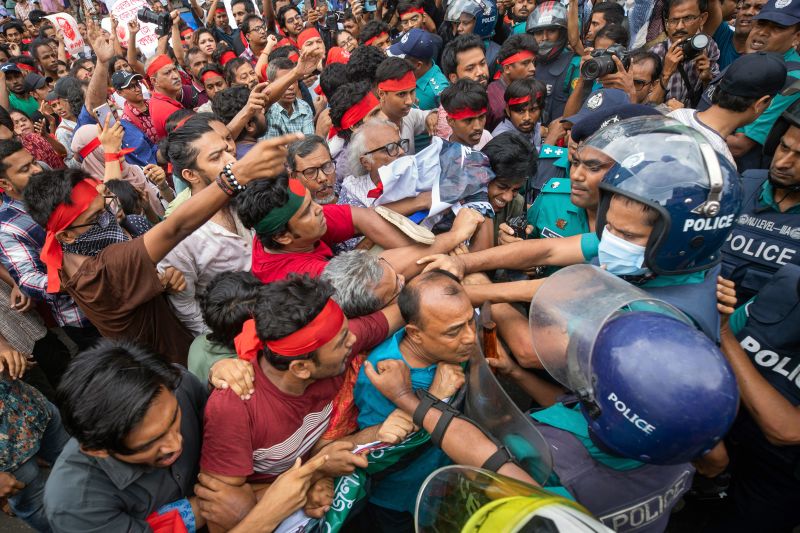Bangladesh Bans Jamaat-e-Islami Party Following Violent Protests That Left More Than 200 Dead
Bangladesh has taken a significant step in response to the violent protests that recently ravaged the country, resulting in a tragic loss of over 200 lives. The decision to ban the Jamaat-e-Islami party marks a significant move by the government to address the unrest and prevent further escalation of violence.
The Jamaat-e-Islami party has long been a controversial and polarizing force in Bangladesh’s political landscape. With its roots in Islamic principles, the party has faced criticism for its alleged involvement in various violent activities and its role in stoking religious tensions in the country.
The recent protests, which erupted following a contentious court ruling, quickly spiraled out of control, resulting in widespread destruction and loss of life. The government’s decision to ban the Jamaat-e-Islami party is seen as a direct response to the violence and an attempt to restore order and stability in the country.
While the ban on the party may alleviate immediate tensions, it also raises questions about the broader implications for Bangladesh’s political landscape. The move is likely to further polarize the population and could lead to increased political instability in the long run.
Critics of the ban argue that it infringes on freedom of association and expression, essential components of a functioning democracy. They warn that suppressing a political party, no matter how controversial or divisive, sets a dangerous precedent and could undermine democratic principles in the country.
Proponents of the ban, on the other hand, believe that the Jamaat-e-Islami party’s extremist ideology and violent tactics pose a real threat to the country’s stability and security. They argue that banning the party is a necessary step to protect the population and prevent further bloodshed.
As Bangladesh grapples with the aftermath of the violent protests and the banning of the Jamaat-e-Islami party, the road to reconciliation and stability remains uncertain. The government faces the daunting task of restoring calm and rebuilding trust among the population while upholding democratic values and principles.
The coming days and weeks will be crucial in determining the impact of the ban on the Jamaat-e-Islami party and the future trajectory of Bangladesh’s political landscape. Only time will tell whether this decision proves to be a turning point towards peace and stability or a step towards further unrest and turmoil.


